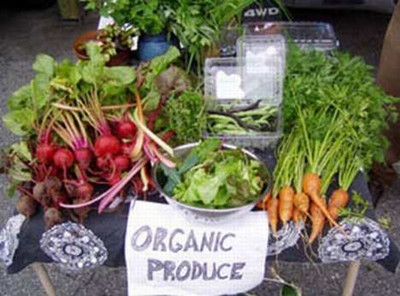(单词翻译:单击)

Eating organic food will not make you healthier, according to researchers at Stanford University, although it could cut your exposure to pesticides. They looked at more than 200 studies of the content and associated health gains of organic and non-organic foods. Overall, there was no discernible difference between the nutritional content, although the organic food was 30% less likely to contain pesticides.
美国斯坦福大学的一组研究人员对200多项有关有机食品和非有机食品的对比研究分析后发现,有机食品虽然可以让消费者接触到更少的农药,但其营养价值并不像人们想象的那么明显。
Critics say the work is inconclusive and call for more studies. The research, published in the journal Annals of Internal Medicine, looked at 17 studies comparing people who ate organic with those who did not and 223 studies that compared the levels of nutrients, bacteria, fungus or pesticides in various foods - including fruits, vegetables, grains, meats, milk and eggs. None of the human studies ran for longer than two years, making conclusions about long-term outcomes impossible. And all of the available evidence was relatively weak and highly variable - which the authors say is unsurprising because of all the different variables, like weather and soil type, involved.
该研究分析了17个食用有机食品和未食用有机食品的人类对比研究,还对223个有关水果、蔬菜、谷物、肉类、牛奶和鸡蛋有机和无机产品营养价值、细菌及农药含量的对比研究进行了分析。因上述人类研究持续时间均不超过两年,研究人员无法对长期实验结果得出结论。
Fruit and vegetables contained similar amounts of vitamins, and milk the same amount of protein and fat - although a few studies suggested organic milk contained more omega-3. Organic foods did contain more nitrogen, but the researchers say this is probably due to differences in fertilizer use and ripeness at harvest and is unlikely to provide any health benefit.
在食品类的对比研究分析中,研究人员发现有机和无机蔬果中的维生素含量相近,牛奶中的蛋白质和脂肪含量也接近。有少数研究显示有机牛奶中不饱和脂肪酸(omega-3)的含量较高。研究人员表示,有机食品中的氮含量的确高于普通食品,不过这可能与肥料及收获时食品的成熟度有关,而且氮含量高的食品并没有任何保健价值。


